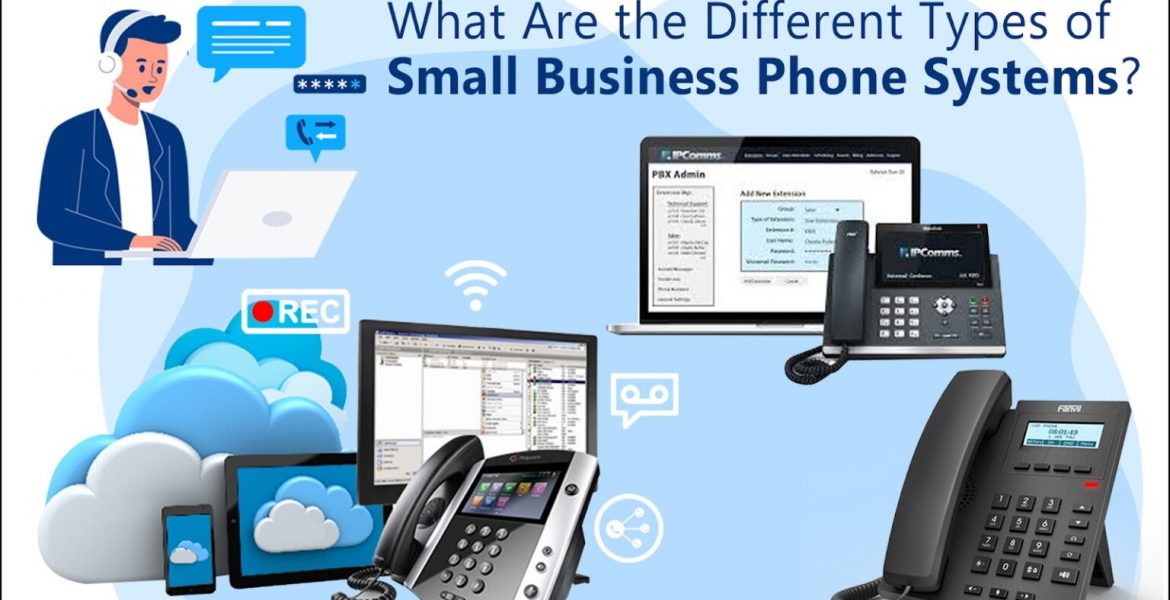Commercial Phone Systems
What Are Commercial Phone Systems?
Commercial phone systems are multi-line telephone networks designed for business use. They help companies manage inbound and outbound calls, support multiple users, and offer features like call forwarding, voicemail, auto-attendants, and conferencing. These systems are essential for maintaining communication between employees, customers, and partners.
Whether you’re a small startup or a large enterprise, a robust phone system improves communication efficiency and customer satisfaction.
Types of Commercial Phone Systems
1. PBX (Private Branch Exchange) Phone Systems
PBX systems are traditional business phone systems using on-site hardware. They allow internal communication between employees and manage external lines. PBX systems are:
- Reliable with excellent call quality
- Suitable for businesses with physical offices
- Costlier to install and maintain
- Limited in remote working capability

2. VoIP (Voice over Internet Protocol) Phone Systems
VoIP systems transmit voice calls over the internet. They’re popular because of:
- Lower costs compared to traditional systems
- High-quality voice transmission
- Easy integration with apps like CRMs and helpdesks
- Scalability—great for growing businesses
- Perfect for remote and hybrid teams
3. Hosted or Cloud PBX Systems
Cloud PBX combines the benefits of PBX and VoIP. These systems are hosted by third-party providers, removing the need for physical equipment. Key features include:
- Managed off-site by providers
- Regular updates and security built-in
- Simple setup and scaling
- Advanced features like voicemail-to-email, call analytics, and IVR
4. KSU (Key System Unit) Phone Systems
KSU systems are best suited for very small businesses. They offer basic call management and routing features but lack flexibility and growth potential. They’re:
- Affordable
- Easy to install
- Limited to a set number of lines
- Not ideal for expanding businesses
Essential Features to Look For
Auto Attendant
Acts as a virtual receptionist. Automatically directs calls to the right department or extension without human intervention.
Call Routing and Forwarding
Redirects calls to mobile phones or other extensions to avoid missed calls. Perfect for businesses with multiple locations or remote employees.
Voicemail-to-Email
Converts voicemail into an audio file and sends it to your email. Helps you stay connected even outside the office.
Call Recording and Monitoring
Useful for training, customer service quality checks, and maintaining compliance in industries like finance or healthcare.
Conference Calling
Lets multiple parties join a call from different locations. Some systems support video conferencing and screen sharing.
Mobile App Integration
Allows you to make and receive calls from your smartphone, laptop, or tablet. Critical for teams working on the go.
CRM Integration
Syncs your phone system with tools like Salesforce, HubSpot, or Zendesk to streamline customer relationship management.
Benefits of a Modern Phone System
- Improved Customer Experience: Faster response times and professional service increase customer satisfaction.
- Cost Efficiency: VoIP systems are more affordable and reduce infrastructure and maintenance expenses.
- Flexibility & Mobility: Employees can work from anywhere without missing important calls.
- Scalability: Add users or features as your business grows—no need to overhaul the system.
- Productivity Boost: Features like call queues, transfers, and analytics improve operational efficiency.
- Brand Image: A professional phone presence enhances your company’s reputation.
Top Commercial Phone System Providers
1. RingCentral
A cloud-based leader offering VoIP, messaging, video conferencing, and robust admin features. Ideal for businesses of all sizes.
2. Nextiva
User-friendly with strong customer service. Known for excellent uptime and built-in CRM functions.
3. 8×8
Provides global voice solutions with advanced analytics and integrations. Great for international businesses.
4. Vonage Business
Customizable phone services for small and mid-sized businesses. Includes CRM integration and API support.
5. Zoom Phone
A newer cloud-based option from Zoom. It’s affordable, simple to use, and ideal for remote teams.
6. Go To Connect (formerly Jive)
An all-in-one platform offering voice, video, and messaging. Easy setup and reliable service.
How to Choose the Right Commercial Phone System
Consider the following factors before making your choice:
- Size of Business: Larger organizations may need enterprise-grade systems; smaller businesses can choose lighter plans.
- Budget: VoIP and hosted systems often cost less over time.
- Work Environment: Remote teams benefit from cloud and mobile-friendly systems.
- Customer Support: Opt for providers with 24/7 support and service-level guarantees.
- Integration Needs: Ensure the system works with your existing software and business tools.
